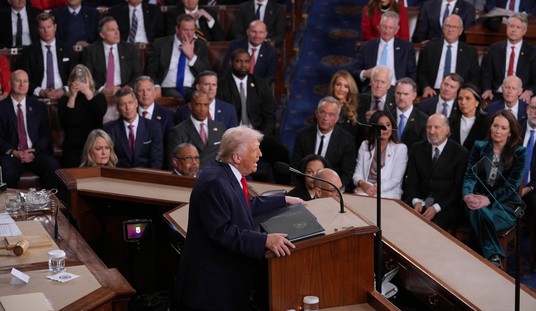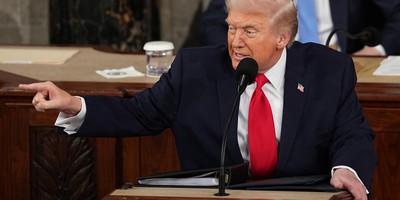Everyone is overreacting to Donald Trump’s tariff talk. The liberal media pops whole bottles of TUMS when he says the word, while anti-Trump Republicans and other sects of the losing GOP brand of the McCain-Romney days also go equally apoplectic. Everyone needs to shut up because the prospect of a full-blown trade war that could decimate the economy isn’t going to happen. It’s meant to bring nations to the table, as Trump has done with Mexico on immigration, and he’s not even president yet.
Moreover, The Wall Street Journal did a deep dive into what China could do if, in this scenario, Trump follows through on that threat to slap Chinese goods with a 60 percent tariff. The answer: Beijing can’t do much, and the pain is likely to be greater for them than for us (via WSJ):
In the weeks since the election, China has flaunted the ways in which it could hit back at the U.S. in the event of a new trade war with the U.S., including everything from choking off the metals needed for everyday products to punishing American companies that do business in China.
But using such tools too aggressively risks backfiring on Beijing.
The big danger is that taking shots at Western companies and restricting exports of critical minerals and other essentials will only encourage the U.S. and its allies to double down on their efforts to untangle their economies from China’s.
That would spell trouble for Beijing as long as it remains wedded to an economic model that relies so heavily on selling its goods to Western consumers.
While China can inflict pain on the U.S. with the economic tools at its disposal, it is more likely to wield them sparingly, according to analysts. Instead, Beijing could use the measures to force talks to negotiate a truce with Donald Trump should he follow through on his promise to impose 60% tariffs on Chinese imports.
[…]
Although China dominates the production and refining of critical minerals, it isn’t the sole supplier worldwide. Last year the U.S. imported more raw gallium from Canada than it did from China, and its top supplier of processed germanium was Germany, according to Census Bureau data. Both minerals are critical to the production of semiconductors, missile systems and solar cells.
China’s dominance of critical minerals relies in part on its ability to supply global markets at low prices, making it uneconomic for rivals to invest in alternative production. But export controls risk pushing up the market price, changing that calculus.
[…]
Moreover, as Russia’s ability to evade Western sanctions has shown, third countries are usually prepared to act as middlemen in global trade, allowing eager buyers to sidestep efforts by sellers to impose restrictions on sales to a particular country. If China got tough on exports of minerals to the U.S., American companies could potentially secure what they need through re-exports by third countries, Gertken said.
Nor is punishing U.S. companies that do business in China the potent threat it once was. China’s sluggish economy and its push to edge out Western brands in favor of domestic rivals mean many U.S. companies are struggling there. As a result, China has become less important to American corporations than it was.
Recommended
The point is that neither side truly wants this, but after Joe Biden has been rolled by China for years, partially because he was never mentally competent enough to handle such talks, it’s time to reset. We also have contingencies here, which, while not optimal, don't portray a picture of Armageddon the likes of which CNN fantasizes that could hurt the second Trump presidency. And that starts with our incoming secretary of state, Marco Rubio, not being bitch-slapped like Blinken was in Alaska.
























Join the conversation as a VIP Member